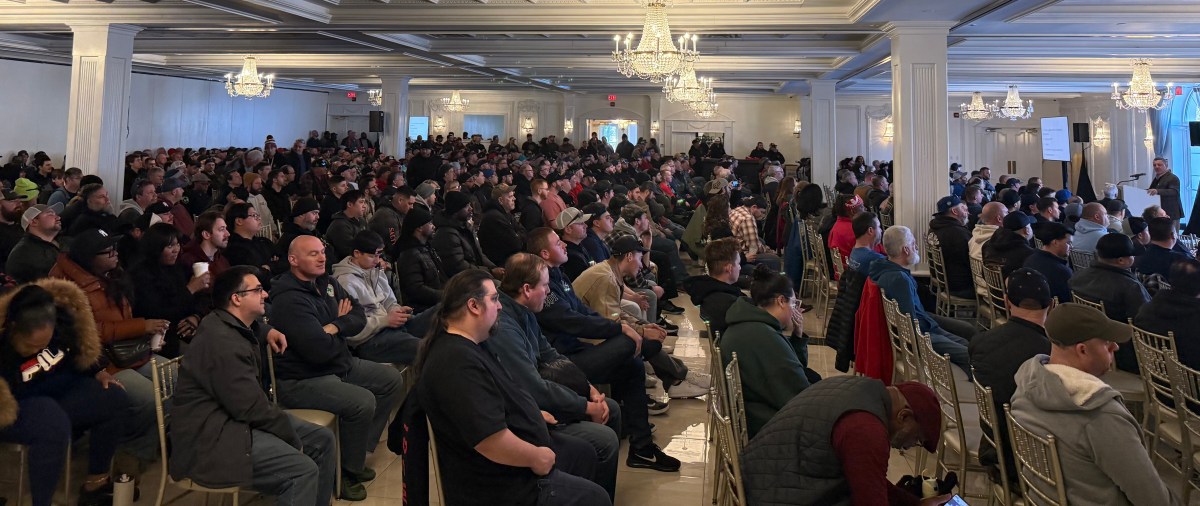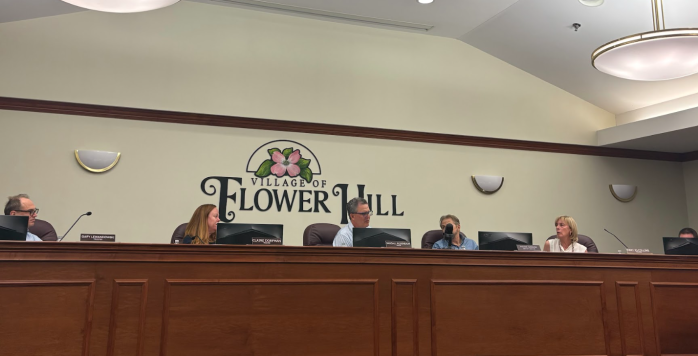Over 1,100 National Grid employees who maintain natural gas transmission networks and operate a fleet of power generators on Long Island are still without a long-term contract.
71% of those workers, who are unionized under the International Brotherhood of Electrical Workers Local 1049, voted to reject the tentative agreement the company put forth after weeks of bargaining, the union announced on March 7.
IBEW Local 1049 business manager Pat Guidice said the rejected agreement did not reflect the employees’ hard work and commitment to the Long Island community.
“We are not willing to accept a deal that is not in the best interests of the hardworking men and women of IBEW Local 1049,” Guidice said. “National Grid has earned record profits on the backs of Local 1049’s talent and dedication. All we’re asking for is fair treatment, justifiable wages, and health and retirement benefits that allow us to remain on Long Island.”
“We are disappointed the tentative agreement we signed by Local 1049 leadership was not ratified by the members. The agreement provided fair wage increases, job security, and equitable retirement and medical benefits,” said Wendy Frigeria, a spokesperson for National Grid, in a statement. “We will continue to negotiate in good faith for a deal that is fair for our hard working employees and affordable for customers.” She added that contingency operations would ramp up the week prior to March 28 if an agreement isn’t reached by then.
The union’s previous contract, which expired on Feb. 13, will be extended to March 28, allowing both parties more time to bargain.
Guidice said that if the two parties don’t reach an agreement or significantly advance toward a fair contract by the 28th, the union will strike on that date. He plans for the two parties to meet and bargain constantly until then.
“I’m trying my best to avoid a work stoppage,” Guidice said. “Our members play an important role in the Long Island community to keep people’s homes warm, keep them lit, and keep the economic engine of our community driving forward.”
“But if it gets to a point where it’s fruitless or we’re wasting our time,” he said about bargaining, “then we will take to the street.”
The primary issues members found with the tentative agreement they voted down – and continued bargaining will be focused on – focus on salaries, pensions, and healthcare, Guidice said. He said roughly 1,000 members came to the union’s membership meeting on Feb. 22, where union leadership talked about the agreement members were to vote on.
“The economic pressure that has been placed on working families today, the runaway inflation over the last several years, and the uncertainty going forward are pretty much mandating that we get a wage improvement that is at least consummate with the cost of living increases through inflation,” Guidice said.
He added that the employees haven’t seen a significant increase in their pensions for over 20 years and an improvement was needed to ensure the pension is not eroded by inflation.
To create economic room for a wage or pension increase, Guidice said the union was pushing for members to remain on their current Blue Cross Blue Shield healthcare plan instead of transitioning to Aetna. This proposal, he said, would save National Grid $12.9 million and offset increases in other areas of the contract.
Guidice emphasized that the union did not have a hostile relationship with National Grid management and felt the two parties were aligned on running a utility company safely and effectively.
“Simply, we need these improvements. “National Grid is not hurting financially,” he said. “I’m going back to the table, and I believe that the employer is coming back to the table, ready to bargain. We both want to get to an agreement that is mutually beneficial.”




































